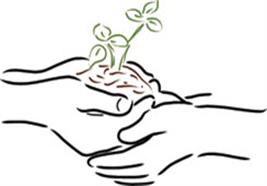DO...
DO use the Internet to help with schoolwork. The Internet is a source of great volumes of information. It's like having the world's largest library at your fingertips!
DO use the Internet to "visit" museums in far away places.
DO use the Internet to meet children in other countries or to keep in touch with pen pals who live far away in this country or other countries.
Some on-line services host chat rooms especially for children, and monitor them periodically for safety. You can safely establish an international mail pen pal through an existing program sponsored by your school, and then expand your pen pal communications to the Internet if your pen pal has access to Internet e-mail at his or her school or a nearby university.
DO be careful about talking to "strangers" on a computer network. Who are these people anyway? Some people say and do things which are NOT NICE.
DO use the Internet to learn more about universities and colleges that you may be interested in attending. Almost all colleges post some information on the Internet. Many colleges let you take a "virtual tour" of the campus, or submit applications for admission or financial aid applications on line.
DO respect the privacy of other users on the Internet, just as you expect your privacy to be respected. How would you feel if someone read your private e-mail or your grades?
DO be careful when you "download" (copy) programs from the Internet. Use a virus scan program before loading it on your computer. Some programs on the Internet contain viruses that can harm your computer.
DON'T...
DON'T give your password to anyone. Passwords are intended to protect your computer and your files. It's like giving the key to your house away!
DON'T answer messages that make you feel uncomfortable because they seem improper, indecent, or threatening. TELL A GROWN-UP RIGHT AWAY.
DON'T give any personal information, such as your family's address, phone number, credit card or calling card numbers, your school's name, or your picture to anyone on a computer network that you don't personally know.
DON'T arrange to meet anyone you've met on the Internet without telling your parents. Some people on the Internet lie about who they are, how old they are, and why they want to meet you.
DON'T try to break into computers. It's not a game. It's a crime and it's an invasion of privacy. Computers often contain sensitive information. How would you feel if someone broke into a computer and changed your grades? Deleted your term paper? Cut off your telephone?
DON'T steal copyrighted computer programs ("software") by copying it from the Internet. This is the same as stealing it from a store. People work hard to develop new programs and deserve to be paid for them. If software designers don't get paid for their work, they can't continue creating new software, such as new educational games or tools that help with schoolwork.
DON'T make copies of any copyrighted material, like books, magazines, or music without the permission of the author, publisher or artist. Copyrighted works are available (usually illegally) on the Internet. You are committing a crime if you copy and distribute them.
DON'T copy material that you find on the Internet and pretend that it's your own work. It's the same as copying a book or magazine article and pretending that you wrote it. It's easy to get caught. Remember, your teacher and thousands of other students have access to the same material.
Article courtesy of the US Dept. of Justice.




